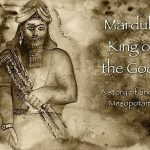For early human beings ‘mercy’ appears to have been a ‘natural’ concept
This is surprising because it took human beings tens of thousands of years to identify themselves as ‘different’ from all other species in their environment, thanks mainly to bird watching and the development of a communicative language.
There are two different linguistic clusters for the category of sex, *’R/*R’ and *KN/*NK, that produced about 30 surviving derivatives. Though with certain differences, there are three categories for motherhood, *MH/*HM, *’M/*M’ and *ḤM/*MḤ.
From *’M we have ‘ma’ “mum’, ‘mama’ “mum”, ‘um’ “mum”, ‘umma’ “nation” (because mums, bless them all, are creators of nations) , ‘imam’ “leader” (they lead and the children and the fathers of the children). Clearly this is the original root for ‘mum, mummy, mamma, mother, mater, mathir, mère’, or most names for mother in many languages.
But please note that ‘mother’ is not a human concept but a name of one of the most natural things in the world – water. This is what *M’ “water”, the second part of the cluster *’M/*M’ simply means. This is also a category so it includes water, both table and sea, milk, juice, etc., but not blood ‘*DM, women’s first lipstick and art cave ink. How do we know that? Because ‘midad’ “ink” is from the blood cluster *DM/*MD.
So, how did words such as ‘ma’ “mum” and hundreds more, moved from south Arabia, and some maybe from east Africa, all the way to Sindh and Europe?
Clearly people take their culture and language with them wherever they go. We believe a cataclysmic conflict erupted between the two main nations in southern Arabia with the victorious nation driving the disseminated nation north, then pushed continually northwards for hundreds of years. If you think about it, it takes about three years to reach Spain from Arabia on foot, give or take. It takes about three and half years to reach China. There is something in the human ‘spirit’ that kept them on the move for thousands of years.
*ḤM/*MḤ is interesting because the bilateral root *ḤM means “warmth”. Though used in Arabic to describe sun heat or fire heat, it originally meant ‘human body heat’. How do we at the Etymology Workshop know that? Because ‘rḥm’ (r+*ḤM) means “womb” and “mercy”. The connection between a natural type of warmth ‘*ḤM’ and the concept of ‘mercy’ are closely connected to make ‘mercy’ illegible for consideration as a ‘natural concept’.
Muslims should know adjectives such as ‘raḥman’ “beneficent” and ‘raḥim’ “merciful”, both ‘names’ for Allah, but clearly borrowed from the ‘natural’ concept.
MḤ is “cunt” and ‘mḥn’ is to go sexually mad. But then you wouldn’t accuse an egg of being sexually mad, would you? *MḤ is the yoke inside the egg. It appears that human beings studied the inside of an egg and applied the principle to women. The egg needs warmth to help the embryo grow into a chicken, and the human baby needs the warmth of the womb.
*BN is the root for “son, daughter”. The second root in the linguistic cluster is a reversed *BN or *NB, the most important meaning of which is “plant”, but specifically the ones that shoot up. ‘Bn’, therefore means nothing more than something that grows up like a plant.
We have identified a word in a different cluster that could mean ‘a baby’, but the one that means a baby inside the womb and outside it is ṬFL from the root *ṬF “float, a raft”. If you can identify the connection between babies and floating you can join us at the Etymology Workshop.
There is a curious word for embryo “janin”. It is from the root *JN which means “unseen”, because people cannot see the embryo inside the womb. The original meaning was applied to night time. From this word is ‘genie’, the one in the Arabian Nights. From it also is ‘Jannah’ “Paradise”. Another secret? You are the only one who knows the original meaning of ‘genie’ and ‘Jannah’ is the “unseen”.
What other words come from *ḤM? Could it be ‘Ham (son of Noah)’?
Yes.
We’ll tell you tomorrow. A note will be added in this space but here’s a clue: human beings cannot pronounce words without vowels. We’re sure you know non-vowels are consonants. Unless a vowel is original in a root you have to strip it. In the case of “Ham” it is “HM” but not with an ‘h’, but a sound produced by directing the stream of air for ‘h’ upwards.
Image: www.leapfrogceramicswarfield.co.uk
Last modified: June 1, 2023



